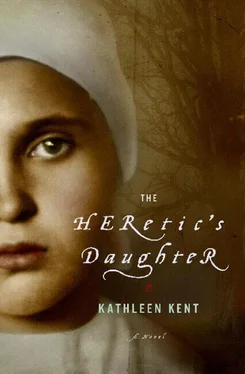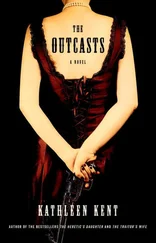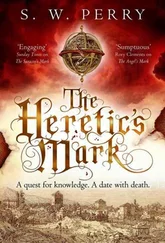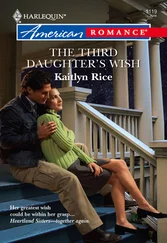Suddenly Aunt called out, “Enough!” Her jaw quivered as she hurried to draw the bolts on the door, and the look in her eyes spoke of days and nights spent in fear of such a raid coming to the Toothaker farm.
That night I lay staring into the darkened room, every sound, every shadow, turning to creeping horrors. I pulled Hannah against me as a shield until I thought my scalp would crawl off my skull with fright. After many hours I fell asleep and began to dream. I saw the terrifying faces of Indians, their skin painted as bright as any scarecrow, forcing their way into my grandmother’s house, carrying with them impossibly long and sharpened butchering knives. It was to my family they had come, but I could not sound the alarm, for my body had been left many miles behind. I watched them gather around my brother Andrew’s cot and saw the sheet pulled back from his head. He lay there unmoving, his pale blue eyes resting in the middle of a bloody mass that had once been his face. Every bit of flesh had been flayed from his muscles, skinned as neatly as an autumn hog.
When I opened my eyes, Margaret was kneeling next to me, her face solemn, her eyes wide and unblinking. I began to cry and she bent down close to my ear and whispered, “Come and sleep with me.” Together we carried Hannah into my cousin’s room and crawled into Margaret’s bed. She held my hands between her own and breathed her moist, warm breath over my fingers. Her breath smelled sweet, like porridge with sweet-gum syrup poured through. Her lips curled up in a knowing way, her eyes slanted to a drowsy pitch. “No one tells stories like Father. He weaves them out of the very air. But I have stories to tell as well, Sarah.”
Through the matted light I could see the delicacy of her, the smooth whiteness of her skin, as she talked. Her voice was low and strangely hoarse as she hummed some bit of nonsense. She placed her arm tighter around my shoulders and pulled my head to her neck like a piece of lump metal to a polished lodestone. We fell asleep, the three of us close together, Margaret’s fingers wound tightly with mine. We woke to my aunt standing startled over us, saying, “Margaret, what have you done? You have put yourself in danger.” We lay there, looking at her as if she were an intruder in her own home.
“There is naught to do for it now, God help us.” She knelt down by the bed and said a silent prayer. I looked to Margaret, but she smiled and nodded, and I believed in that moment that Aunt and Uncle would come to love me as well.
From that time, there was not an hour that passed that I did not compare the fullness of my days with the dryness that was life with my own family. Where mine was reserved to harshness, Margaret’s was lavish with praise and care. Where my parents were silent or sullen, hers were animated with talk and laughter. And even though Margaret’s laughter was directed at me at times because of some slowness or ignorance on my part, I believed it made my own wit grow all the more, like a copper coin that is rubbed to greater brightness with a rough cloth.
Being with Margaret was like standing inside the casing of a lantern, one that kept the warmth in and the stinging insects out. I refused to think it peculiar if at times, gazing up at the tops of trees, she nodded to the air and said, “Yes. I will.” Or if, in carving out little hollow places in the snow, she placed her ear close to the ground to listen to some music only she could hear. I did not think it strange, because she was lovely and had claimed me. And because she was mine.
Once, when I was five, my mother had harvested a large crop of early pumpkins, more than we could keep without their rotting. We chopped them into fragrant pieces, salted them, and fed them to our cow. The milk and cream that she gave for many days was yellow-orange and tasted as though someone had ladled honey into the milking buckets. That was how it was in the presence of my cousin’s family: their sweet and salty natures mingled themselves with my own, leavening my suspicious and prickly nature.
My cousin and I did everything as with one hand. Whatever work one of us was sent to do, the other would find some strategy to accomplish that same task, so that Uncle would often say with great relish, “Ah, here come my twins.” And Margaret and I would laugh as we looked at each other, she with black hair and skin like potted cream and I with my flaming hair and spotted face. The only time we separated, waking or sleeping, was upon the Sabbath, when Uncle and his family went to the meetinghouse. Hannah and I could not accompany them, as we were meant to be home in Andover dying of the plague. My sister and I would wait, house-bound and bored, eagerly watching the road for the Toothakers to return to us again.
It snowed hard that winter, and the drifts often buried the house and barn within a few hours. Before sunrise every morning, we would clear a path to the barn with shovels and bowls or with our bare hands. Once a path was cleared, Margaret and I would walk hand in hand to the creek that ran hard by the house to get water. The snow was deep along the creek banks, waist high, and if we fell into the drifts our clothes were wet to our skin. Breaking through the crusted ice to fill our buckets blistered my hands, and however hard we tried, however big the hole, the following day the creek would be covered again with ice. Margaret always wore her mittens to save her hands from the snow, which made me loath to place my calloused palms into her own seamless ones. I would look at my hands and feel ashamed of their hardened places, the cracked and bleeding skin around the knuckles. But she, after kissing each fingernail in turn and slipping her own mittens over my hands until they were warmed to life, would sing in an odd, lilting way, “And thus I am you and you are me and I am you again, you see.”
Drinking the water from the creek was like biting into a piece of metal that had long been buried in the snow, and it would sting the back of our heads if drunk too deeply. After taking water to the house we would with Henry’s help lead the animals out one by one to the stream. I fear the animals suffered greatly from thirst as we hurried them, urging them back to the barn to save our frozen hands and feet.
Margaret’s family had more livestock than did mine. Their barn was not large but had been well built with the help of the oldest son, Allen. Allen did not yet have his own farm but lived and worked in north Andover in the house of his friend, Timothy Swan. He came often during planting and harvest seasons to help work his father’s fields and share in the yield. It would be Allen who would someday inherit Uncle’s farm. In their barn was a milk cow, two oxen, a large hog, her belly swollen with a litter soon to come, three chickens, and a rooster.
Uncle also had a large roan gelding that he used only for the saddle. He said the horse was too finely bred for a cart. One of Henry’s chores was to keep his father’s saddle well cleaned and oiled. Once he showed me a place just under the horn that had been nicked half a dozen times by a sharp knife. Henry whispered to me that these marks were the number of Indians his father had killed with his own hands during King Philip’s War. He ran his finger along the small gouges in the leather and bragged, “Someday this saddle will be mine, and there’ll be a dozen marks on the horn before I turn twenty.” I looked at him through slitted eyes and wondered how he was to accomplish so great a murdering task, because he had no great strength and no full measure of courage. Perhaps, as he had done with Hannah and me, he’d ambush them all from behind.
When Uncle came into the barn, he always brought some fine treat, a piece of dried apple or some kernels of corn, for his prized gelding, Bucephalus. It was the name Alexander, the Greek king, had given to his favorite war steed. An apocalyptic horse, for where the horse went, so went Alexander’s troops, bringing the fire of battle. The name meant “Oxhead,” which made me laugh, as the gelding had a very small, neat head. Uncle would wag his finger at me and say, “Ah, but there is the word and then there is the spirit of the word. Bucephalus is so called because I see in him the spirit of bravery. I see the world, Sarah, and call it by what I feel it should be, not by what others who in their dull reveries think it is.”
Читать дальше












